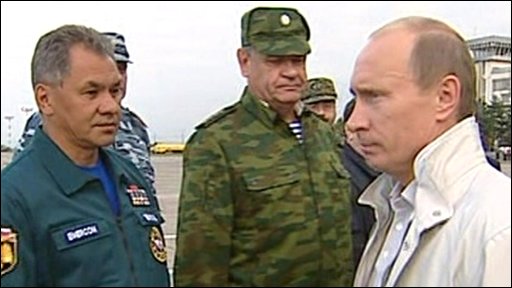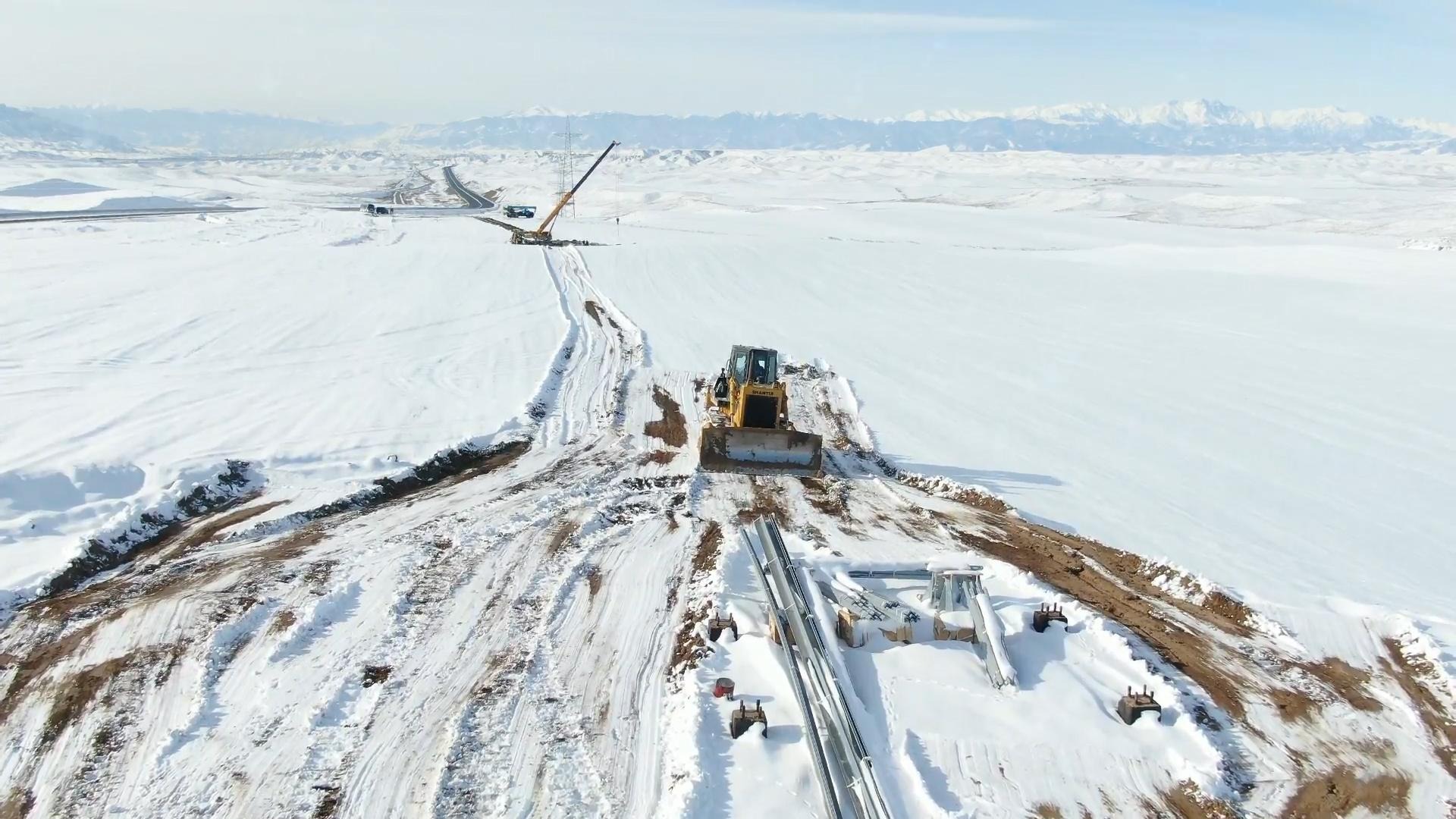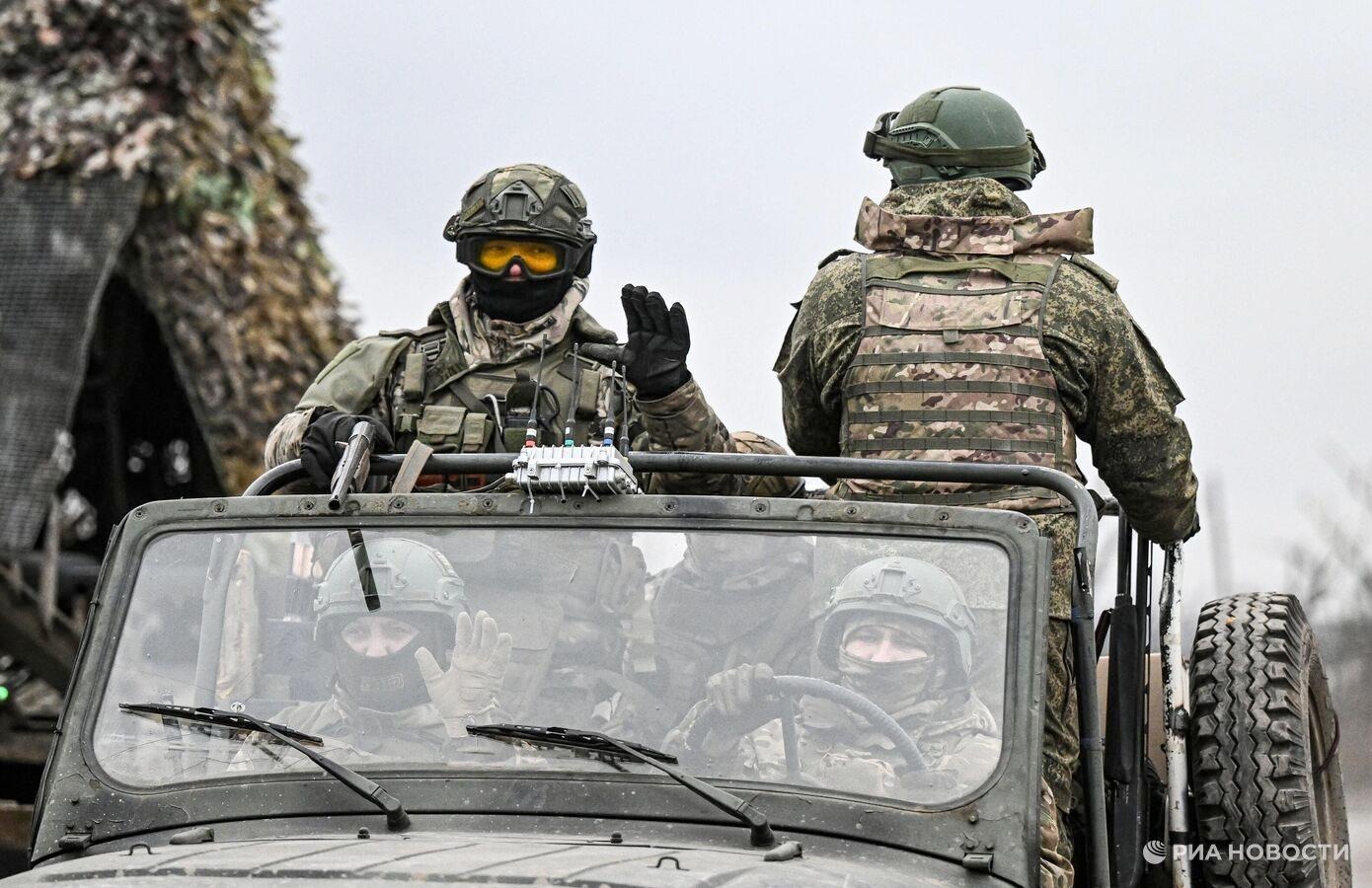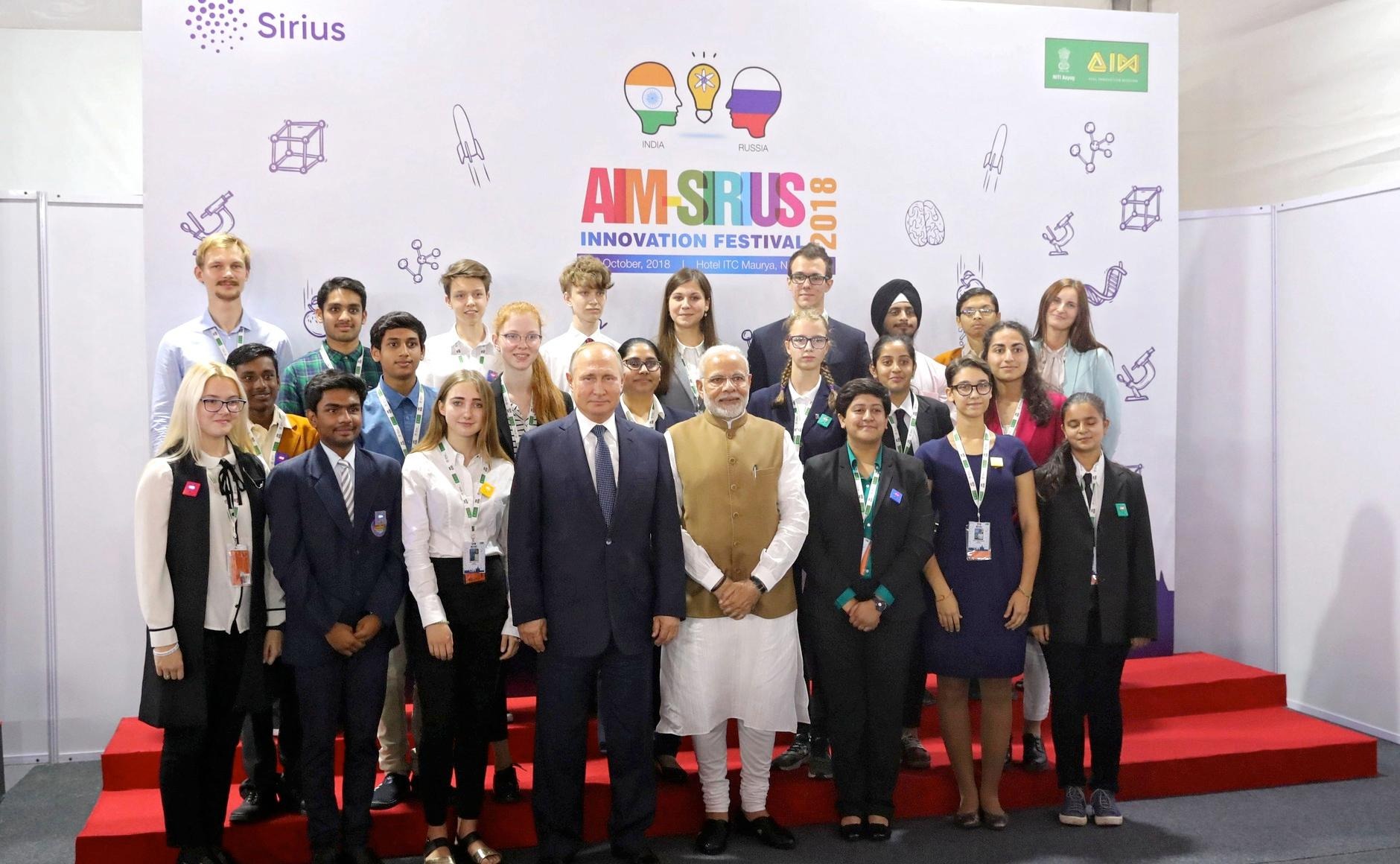
RUSSIAN “TANDEMOCRACY” STUMBLES INTO A WAR
RUSSIAN “TANDEMOCRACY” STUMBLES INTO A WAR
Moscow was disconcertingly taken by surprise with the sharp escalation of hostilities in South Ossetia last Friday. The most apparent part of the problem was the lack of leadership, as President Dmitry Medvedev departed to a Volga resort and Prime Minister Vladimir Putin went to Beijing to attend the opening ceremony of the Olympic Games. The greater problem was the serious military and political miscalculations that had resulted in the apparently chaotic emergency decision-making (Kommersant, August 9; Ezhednevny zhurnal, August 8). It is hard to blame the military for missing the Georgian preparations for the large-scale offensive, since the command of the Armed Forces had been thoroughly reshuffled: The Chief of the General Staff was replaced in early June, his first deputy (the head of the Main Operational Department) was fired in early July and not replaced, and the commander of the Ground Forces was replaced in the first days of August (Nezavisimaya gazeta, August 5).
The main blunder, however, was political, as the Kremlin seriously overestimated its ability to dominate the situation in the conflict zone. The large-scale military exercises conducted across the North Caucasus in July were supposed to demonstrate Russia’s superiority in projecting power (Nezavisimaya gazeta, July 18). In parallel, the withdrawal of the railway troops from Abkhazia in early August symbolized Moscow’s flexibility and responsiveness to the peace proposals advanced by Germany (Nezavisimaya gazeta, August 8). Putin was confident that his performance at the NATO Bucharest summit had effectively blocked Georgia’s Atlantic aspirations; several stern “warnings” should have ensured that Georgia would not dare make any pro-active move. Surprise was so complete that Putin, according to those who saw him in Beijing, was pale with barely controlled rage, which he tried to convey to U.S. President George Bush and Kazakh President Nursultan Nazarbayev (Moscow echo, August 8).
The issue for Putin was not only that he had never expected Georgian President Mikheil Saakashvili to launch a blitzkrieg in the opening day of the Olympic games, but also that the crucial stage in Moscow was left for Medvedev to perform. It was only at 15:00 local time that Russian Security Council gathered to consider the available options, and Medvedev was acutely aware that any sign of hesitation on his part would destroy the little credibility he had gathered during the first 100 days of his presidency (www.gazeta.ru, August 9). The result was a brief statement condemning Georgia’s “aggression” and asserting that “We will not allow the deaths of our fellow citizens to go unpunished.” By that time, however, the Russian massive armored column was already approaching Tskhinvali, and it could only be assumed that it was indeed Medvedev who had given the “go-ahead” order earlier in the morning.
In the highly stressful first day of an unexpected war, Medvedev had to disregard both the agreements that limited Russia’s peacekeeping role of monitoring the ceasefire (with no provisions for “peace enforcement”) and the domestic legislation that required a resolution of the Federation Council authorizing the use of Armed Forces outside Russia’s borders. The TV propaganda machine was instantly switched on providing non-stop coverage of the “humanitarian catastrophe,” and the statements by military officials that the Georgian soldiers were “finishing off” wounded Russian peacekeepers at the captured observation posts were provocative to the extreme (RIA-Novosti, August 8).
The immediate task of the military operation was clear–to push back the Georgian troops that had captured Tskhinvali after heavy bombardment, but the heights around the city were taken only on Sunday. The key problem for the Russian troops was that reinforcements and supplies could be moved in only by one narrow road under fire from Georgian positions. The lack of quick demonstrative success prompted Moscow to opt for punishing air-strikes on Gori and Poti, while the bombs dropped on the Vaziani Airbase outside Tbilisi were probably intended to force the evacuation of U.S. military instructors. This disproportional response allowed Saakashvili to portray Georgia as a victim of aggression and generated international pressure for a ceasefire (Moscow echo, August 9). Medvedev, however, had to listen first to the generals who argued that control over Tskhinvali could not be secured without opening the key supply line to the north, which required storming several Georgian villages, from Tamarasheni to Kemerti. The population of this enclave had to be evacuated to Georgia in order to prevent brutal “ethnic cleansing” by volunteers from the North Caucasus.
Driven by this war logic, Medvedev might discover that his “‘liberal lawyer” image has transmogrified into a hawkish quasi-warrior, who is, in fact, a hostage to several clans of reinvigorated siloviki (www.gazeta.ru, August 9). He might think that his grasp on power in the experimental “tandem” has suddenly strengthened and even find it enjoyable to give Putin an order to change his schedule and go to Vladikavkaz to coordinate the humanitarian relief operations. Putin, however, thrives in the “dirty war” environment, and he easily trapped Medvedev with the tough statement about genocide that would involve “mortal damage” to Georgia’s territorial integrity (www.newsru.com, August 9).
The catch is that Russia cannot maintain its ambivalent stance of supporting the secessionist quasi-states and acknowledging that they remain parts of Georgia; nor can it keep pretending that it is not a party to the conflict but merely the guarantor of a non-existent peace process. Prior to the war, Moscow had been very irritated by Eduard Kokoity’s corrupt regime, but now to all intents and purposes it owns South Ossetia and has not only to provide aid but to resolve the status issue (Ezhednevny zhurnal, August 8). Medvedev is forced to make decisions that he is very uncomfortable with and to place them in a new strategic line for the Caucasus that he is not really qualified to draw, while Putin takes charge over practical matters like distributing money and resources. Spoils from this “victory” would hasten Russia’s drift from democracy, worsen its investment climate, and add more tension to relations with the West and with Ukraine. Diplomats may contemplate a return to the status quo ante, but Russia has changed in the course of this entirely unnecessary war, and the damage cannot be undone.


